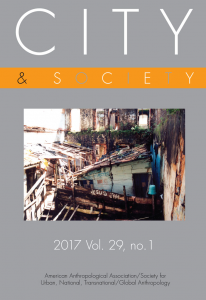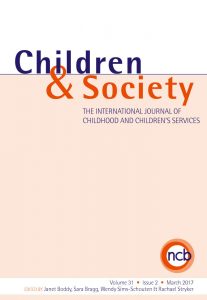Editor's Highlights: Diversity in the Diaspora
 In the media they produce, diasporized communities express both the cultural practices they share with others from the same origin and their differences from host cultures. Harindranath’s December 2009 article in the Race and Ethnicity section of Sociology Compass critically explores research of media and diasporized communities to reveal paths for future research that will allow for a better sociological knowledge of diasporas. He begins by examining literatures on the politics of creating identity in a diaspora and the meaning of the term diaspora. A review of studies of media production and consumption reveal weaknesses in existing scholarship: the homogenization of the diaspora, a reliance on national boundaries, and an uninterrogated analysis of space. Harindranath also critiques studies of audience, particularly assumptions about ethnicity and race and the absence of other factors such as class. To understand diasporas that are diverse along many vectors–race, ethnicity, class, education, or gender–studies of transnational migrants must critically examine existing methodologies and epistemologies.
In the media they produce, diasporized communities express both the cultural practices they share with others from the same origin and their differences from host cultures. Harindranath’s December 2009 article in the Race and Ethnicity section of Sociology Compass critically explores research of media and diasporized communities to reveal paths for future research that will allow for a better sociological knowledge of diasporas. He begins by examining literatures on the politics of creating identity in a diaspora and the meaning of the term diaspora. A review of studies of media production and consumption reveal weaknesses in existing scholarship: the homogenization of the diaspora, a reliance on national boundaries, and an uninterrogated analysis of space. Harindranath also critiques studies of audience, particularly assumptions about ethnicity and race and the absence of other factors such as class. To understand diasporas that are diverse along many vectors–race, ethnicity, class, education, or gender–studies of transnational migrants must critically examine existing methodologies and epistemologies.
![]() R. Harindranath on Translating Tradition: The Poetics and Politics of Diasporic Media
R. Harindranath on Translating Tradition: The Poetics and Politics of Diasporic Media




1756-2589/asset/NCFR_RGB_small_file.jpg?v=1&s=0570a4c814cd63cfaec3c1e57a93f3eed5886c15)
Z2ocst gqhydturzrtv, [url=http://ayhumojdeeob.com/]ayhumojdeeob[/url], [link=http://diynodlgyoyz.com/]diynodlgyoyz[/link], http://sfifymxkqjlt.com/